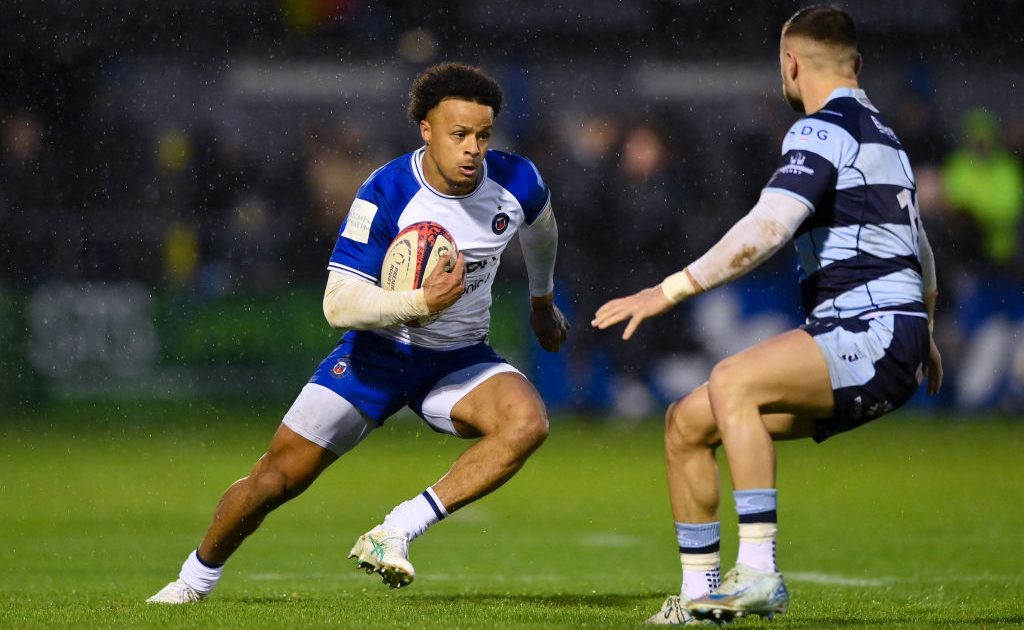Regan Grace se relance et vise une sélection pour le Pays de Galles

L’ancienne ex-future pépite du Racing 92 Regan Grace a trouvé un point de chute où il devrait enfin réussir à jouer.
Cardiff Rugby a en effet conclu un accord pour s’attacher les services de l’ancienne star de la Super League en provenance de Bath, actuel leader de la Premiership, jusqu’à la fin de la saison.
Natif de Port Talbot, Grace, 28 ans, qui a participé à trois finales successives de Super League avec St Helens avant de passer du XIII au XV, était convoité par le club de Arms Park pour compenser les blessures et a sauté sur l’occasion de relancer sa carrière dans le sud du Pays de Galles.
Ancien treiziste star, espoir déçu du Racing
Ancienne star du rugby à XIII, Regan Grace avait auparavant rejoint le Racing 92 à l’été 2022, mais une rupture du tendon d’Achille avant son arrivée l’a empêché de jouer pour le club francilien.
Malgré les espoirs placés en lui pour dynamiser les lignes arrières et remplacer Teddy Thomas parti à La Rochelle, l’ailier gallois n’a jamais pu porter le maillot ciel et blanc en raison de rechutes à répétition, faisant de lui l’un des échecs les plus marquants en termes de recrutement pour le Racing. Un an plus tard, Grace avait quitté le club pour relancer sa carrière à Bath.
Grace, qui a déjà impressionné avec le Pays de Galles et lors de matchs amicaux avec Bath, espère attirer l’attention de Warren Gatland avant le Tournoi des Six Nations. Après une opération des ischio-jambiers, il est revenu sur les terrains et a participé à des rencontres de la Premiership Cup et de la Champions Cup.
Gatland, qui apprécie son profil, pourrait le sélectionner dès le début du Tournoi contre la France le 31 janvier, s’il enchaîne de bonnes performances avec Cardiff, où il cherche à se remettre en lumière.
Cet article a été initialement publié sur RugbyPass.com et adapté en français par Willy Billiard.
Nos experts ont classé les meilleurs joueurs de rugby de l’histoire. Retrouvez notre Top 100 et dites-nous ce que vous en pensez !



